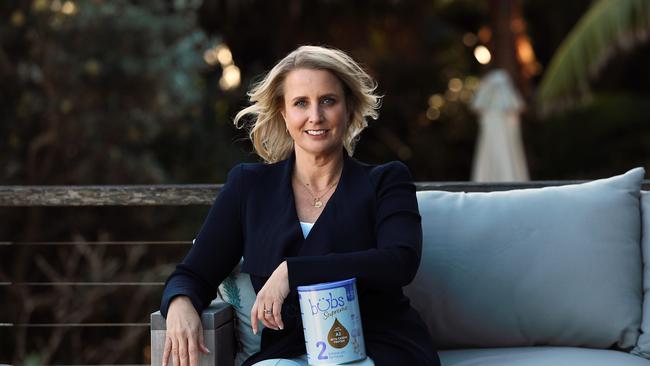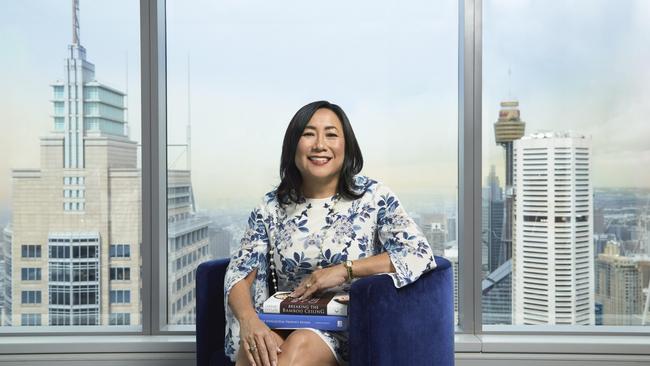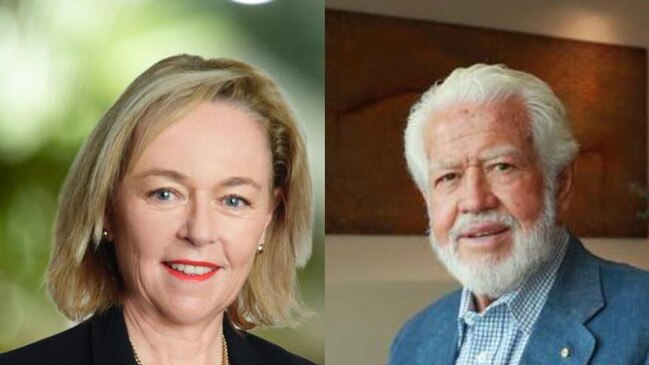Bubs and Blackmores show that departures of founder need to be handled with care
One thing is clear amid the mudslinging at Bubs and previously Blackmores: the departures of founders need to be handled with care.

Bubs chair Katrina Rathie has appointed a proxy solicitation firm as she moves to defend a boardroom coup led by the company’s founder and sacked chief executive Kristy Carr.
Ms Rathie has written a letter to shareholders, headlined in red ink ‘take no action’, urging them to side with her as Ms Carr and a group of dissident shareholders move to spill the board.
Ms Rathie writes that she has recruited “shareholder communications firm” Morrow Sodali to answer any questions investors may have. She adds that Morrow Sodali – which spruiks itself as having “unparalleled record of success” as a proxy solicitor – may also contact shareholders directly in coming weeks to “provide information authorised by Bubs”.
It is a similar tactic that former Blackmores chair Anne Templeman-Jones adopted during a spat with the company’s biggest shareholder and effective founder Marcus Blackmore two years ago.
In both feuds, all parties came equipped with high-profile spinners to broadcast their arguments, with Ms Rathie choosing to “break her silence” exclusively in the Australian Financial Review last Friday. Blackmores preferred to keep its defence largely confined to ASX statements.
In both cases there are more questions than answers, with leading proxy advisor and corporate governance expert Dean Paatsch describing the brouhaha as an “information problem”.

At Bubs the discontent erupted when Dennis Lin was demoted earlier this year, with the board separating his chair and executive roles in the name of corporate hygiene. They also cited a “recent deterioration in Bubs financial performance over the half year” as another reason for leadership change.
Ms Carr was livid. She went on leave and the board learned that she began contacting other shareholders, suppliers and customers, saying Mr Lin was a “true leader” and had “masterminded” Bubs’s success.
“I 100 per cent stand by him,” Ms Carr wrote.
Ms Rathie and other Bubs directors were equally livid and sacked Ms Carr, saying she had refused to follow “reasonable board directives”. Amid the fighting, Bubs shares have continued to free fall, plummeting more than 71 per cent to 17c in the past 12 months.
In her letter to shareholders, Ms Rathie said the board has taken steps to “protect and grow shareholder value”, with the sackings of Ms Carr and Mr Lin at the top of this list.

Ms Rathie also writes that the board has “appointed a highly credentialed independent chair”, in reference to herself.
Ms Carr has since launched a PR campaign to unseat Ms Rathie and other directors, and install former A2 Milk Asia Pacific boss Peter Nathan as the company’s next chief executive. She has recruited about 5 per cent of Bubs’s shareholder register, including the company’s China distributor AZ Global, and has also launched legal action.
Like in the Blackmores saga, the exact cause of the unrest is murky – made even more so by the barrage of mudslinging from both sides.
Indeed, at Blackmores it was only after Mr Blackmore had unleashed his campaign that Ms Templeman-Jones accused him of not adhering “to the principles of respect in the workplace” when he was director a year earlier. She didn’t elaborate further, saying that the board was “constrained”, while Mr Blackmore said he had been “vilified”, and investors remained clueless at what exactly happened.

Ms Templeman-Jones quit Blackmores a year later, while Mr Blackmore agreed to sell his 18 per cent stake shareholding into Japanese brewing giant Kirin’s $1.85bn takeover of the vitamins company, reaping $355m.
What’s clear, at both Bubs and Blackmores, is that the last thing any Australian company wants is a founder outside the tent with a slingshot in hand.
Their departures need to be handled with care, to ensure they don’t become a liability.
Companies equally have to be mindful when dismissing management, as was the case when Michael Ohanessian led a shareholder revolt after he was sacked as Praemium’s chief executive in early 2017. He was reinstated at an extraordinary general meeting two months later, only to abruptly leave the company in May 2021.
Mr Paatsch cites capitalism as driving the unrest. But he also says capitalism will sort it out, with shareholders ultimately having the power to install and depose directors.
“In Australia we are blessed with rights. You can very quickly move from pushing someone in the chest and punching them in the throat with the full force of the law,” Mr Paatsch said.
“So if people really do have a case, the right forum to do it is not punching it out in the daily financial press. It’s at an extraordinary general meeting and then we’ll find whose arguments are the strongest.”




To join the conversation, please log in. Don't have an account? Register
Join the conversation, you are commenting as Logout